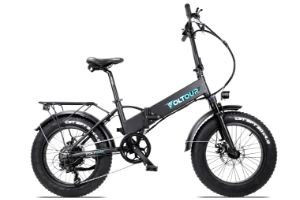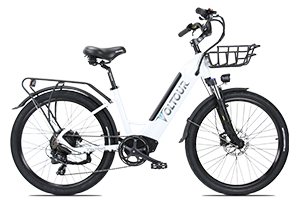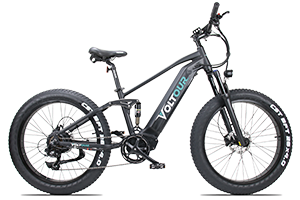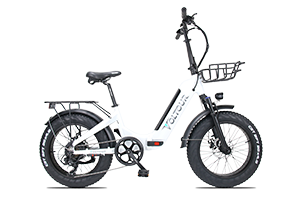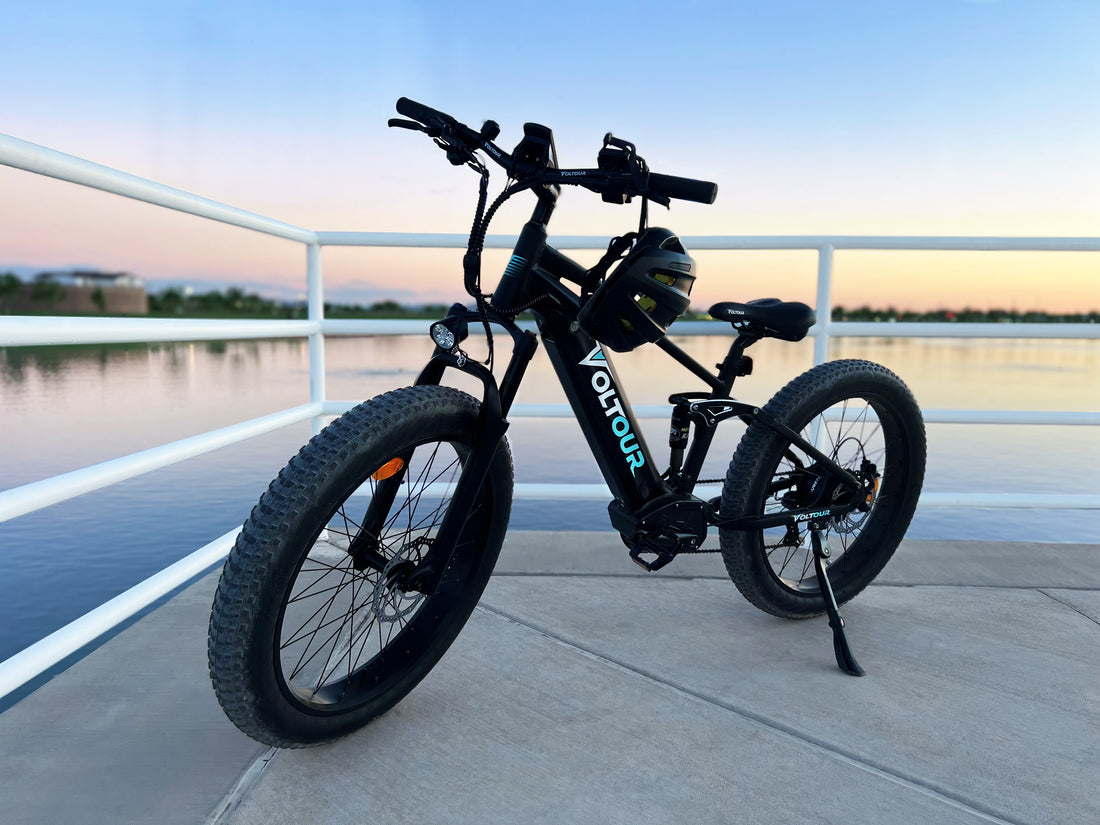Electric bikes are a convenient way to get around, especially for longer distances or hilly terrain. You will be able to travel faster and with less effort, allowing you to arrive at your destination feeling fresh and energized. Not only does riding e-bikes provide health benefits and be cost-effective, but it is also eco-friendly.
E-bikes are good for the environment as they produce zero emissions while in use, making them an eco-friendly alternative to cars and other motorized vehicles.
There are several environmental benefits associated with using an electric bike:
-
Reduced carbon emissions
-
Energy Efficiency
-
Reduced Air Pollution
-
Noise Reduction
-
Reduced traffic congestion
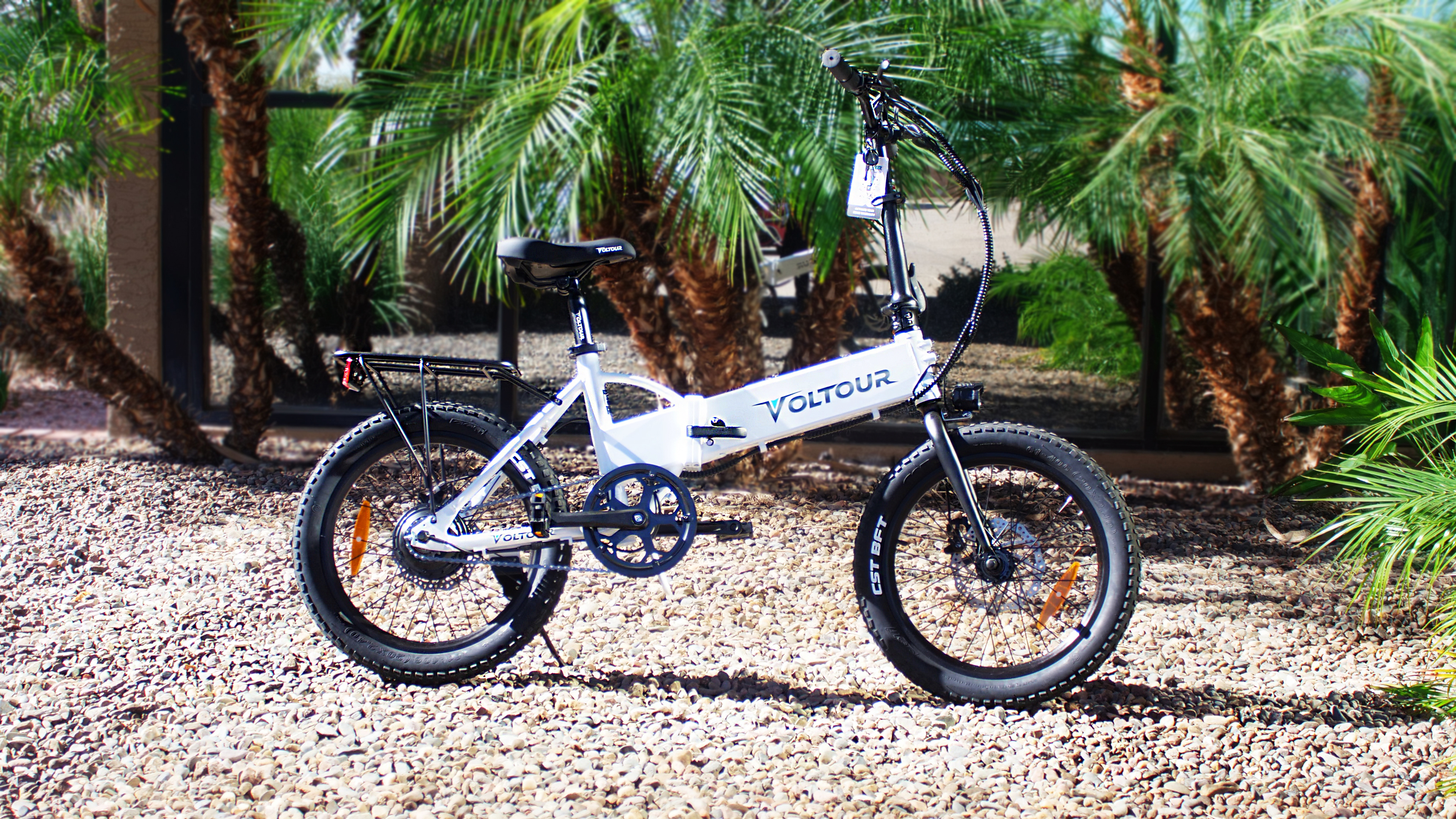
Reduced Carbon Emissions
E-bikes play an important role in providing a more sustainable and environmentally friendly mode of transportation. If more people ride e-bikes instead of traditional motor vehicles, our carbon footprint and reliance on fossil fuels can be reduced.
Because they are powered by an electric motor that is powered by a rechargeable battery, e-bikes emit no emissions while in use. This means they don't emit any harmful pollutants or greenhouse gases into the environment, which can aid in the reduction of air pollution and the combat of climate change.
E-bikes make a significant contribution to climate change by reducing air pollution and greenhouse gas emissions. E-bikes are a more energy-efficient mode of transportation because they use less energy per kilometer than traditional motor vehicles.
The production and disposal of e-bike batteries can have environmental consequences; therefore, proper disposal is critical to minimizing their environmental impact.
Energy Efficiency
E-bikes consume less energy than traditional bicycles or motor vehicles. An e-electric bike's motor assists the rider in pedaling, allowing them to travel further and faster with less effort. This can help to reduce the amount of energy required to travel a certain distance.
E-bikes are also powered by rechargeable batteries, which further reduces their environmental impact. True, e-bikes must be charged on a regular basis, but even basic e-bikes can travel 20-30 miles on a single charge. However, there are options that yield higher ranges.
Compared to cars, e-bikes are also much more energy-efficient. According to a study conducted by the European Cyclists' Federation, e-bikes consume between 2 and 5 watt-hours per kilometer, compared to a car that consumes up to 15 times as much energy per kilometer. This means that e-bikes are a more environmentally friendly and energy-efficient mode of transportation that can help reduce energy consumption and greenhouse gas emissions.

Reduced Air Pollution
E-bikes do not emit harmful pollutants into the environment, such as carbon monoxide or nitrogen oxides. This is because e-bikes are powered by an electric motor that is powered by a rechargeable battery and emits no emissions while in use. You can help reduce air pollution and improve air quality in your community by riding an e-bike instead of a gasoline-powered vehicle.
Air pollution can have serious health consequences, including respiratory issues, heart disease, and stroke. E-bikes can improve public health and create a more sustainable and livable environment by reducing air pollution.
Noise Reduction
E-bikes are generally quieter than traditional bicycles or motor vehicles. They are powered by an electric motor, which produces less noise compared to gasoline-powered engines. This can help create a more peaceful and enjoyable environment, particularly in urban areas where traffic noise can be a significant problem.
Reduced noise pollution can have many benefits, such as improving overall quality of life, reducing stress levels, and creating a more pleasant environment for pedestrians, cyclists, and residents.

Reduced Traffic Congestion
E-bikes are a cost-effective and convenient alternative to cars and other motorized vehicles. They can help reduce traffic congestion by allowing riders to move quickly and easily through it. To avoid congested roads and highways, riders can frequently use bike lanes or other dedicated cycling infrastructure.
Heavy traffic increases the consumption of fossil fuels as cars have to keep moving at much slower speeds and for a longer time. Riding an e-bike instead of a car can help reduce traffic congestion and improve traffic flow, especially in congested urban areas. It also reduces travel times and increases overall transportation efficiency, resulting in an environmentally friendly and sustainable transportation system.
There are numerous benefits to reducing traffic congestion, such as improved air quality, lower fuel consumption, and making a community more livable and enjoyable for residents and visitors.
Conclusion
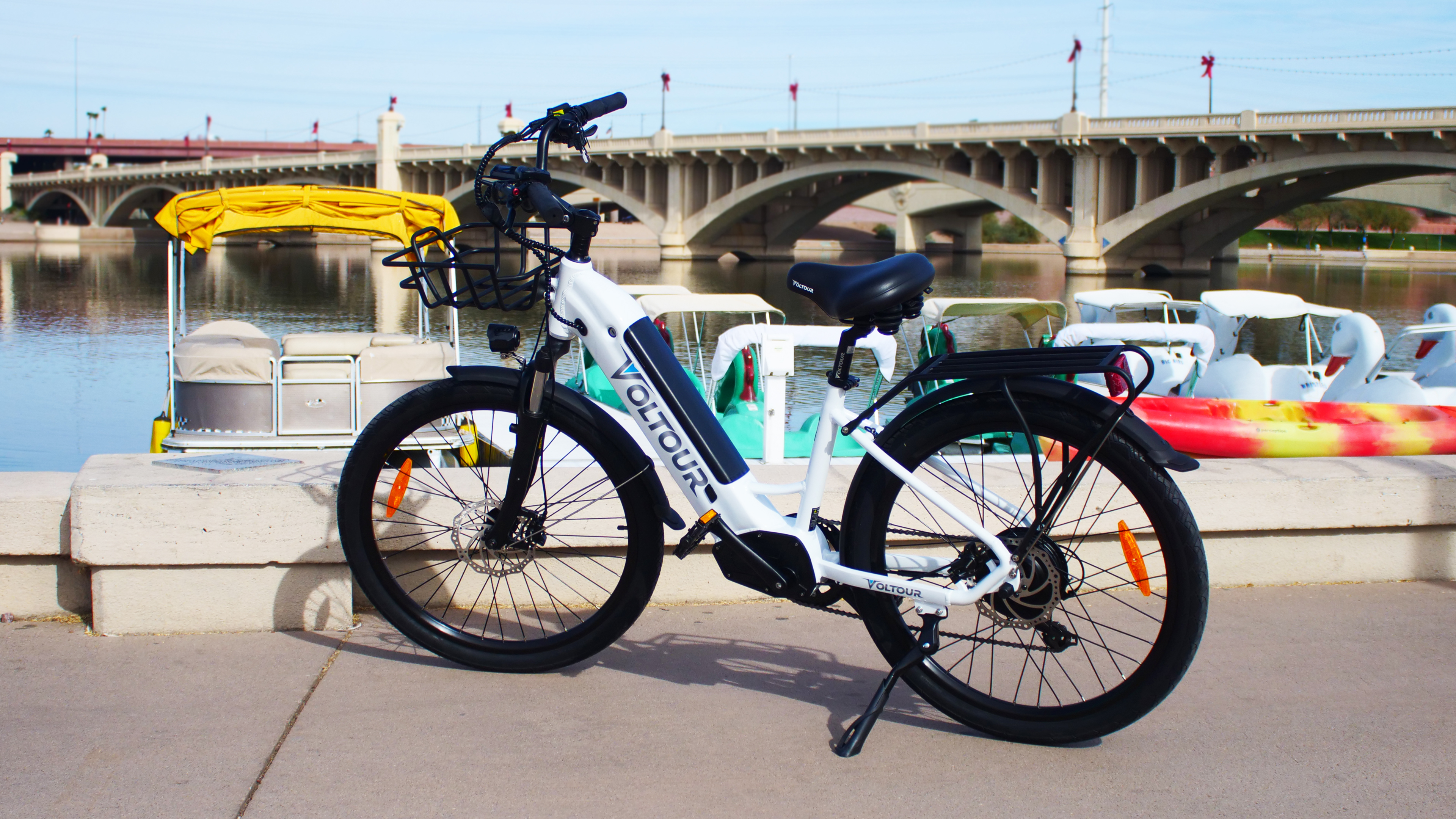
Using an electric bike can provide many environmental benefits, making it a great choice for those looking to reduce their impact on the environment. Electric bikes produce zero emissions while in use, reducing air pollution and greenhouse gas emissions.
They are also energy-efficient and can help reduce energy consumption and dependence on fossil fuels. Additionally, e-bikes can help reduce noise pollution and traffic congestion, creating a more livable and enjoyable community.
Overall, electric bikes are a more sustainable and eco-friendly transportation option that can help reduce your carbon footprint and promote a healthier and more sustainable lifestyle. Whether you're commuting to work, running errands, or exploring the outdoors, an e-bike can be a great way to get around while minimizing your impact on the environment.

